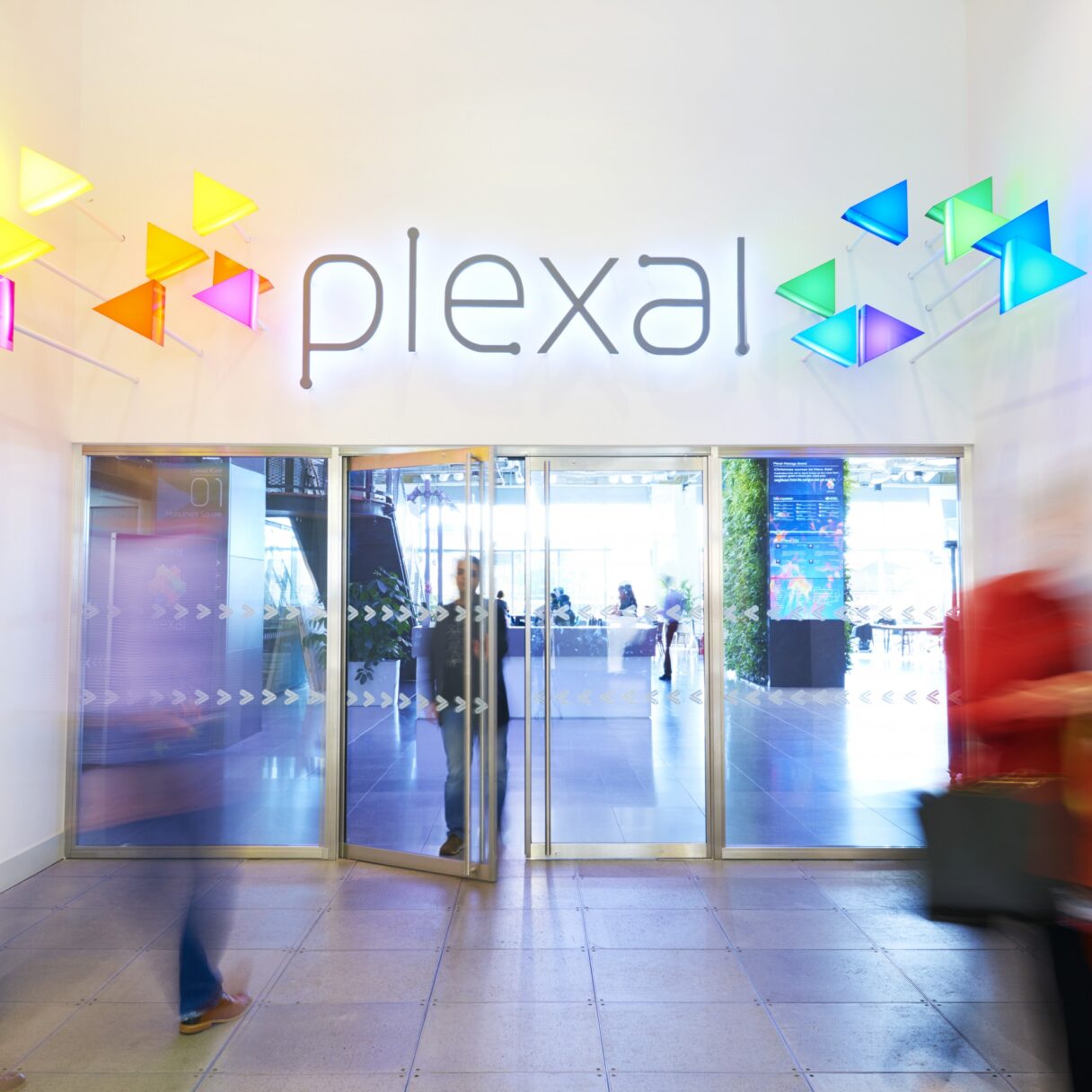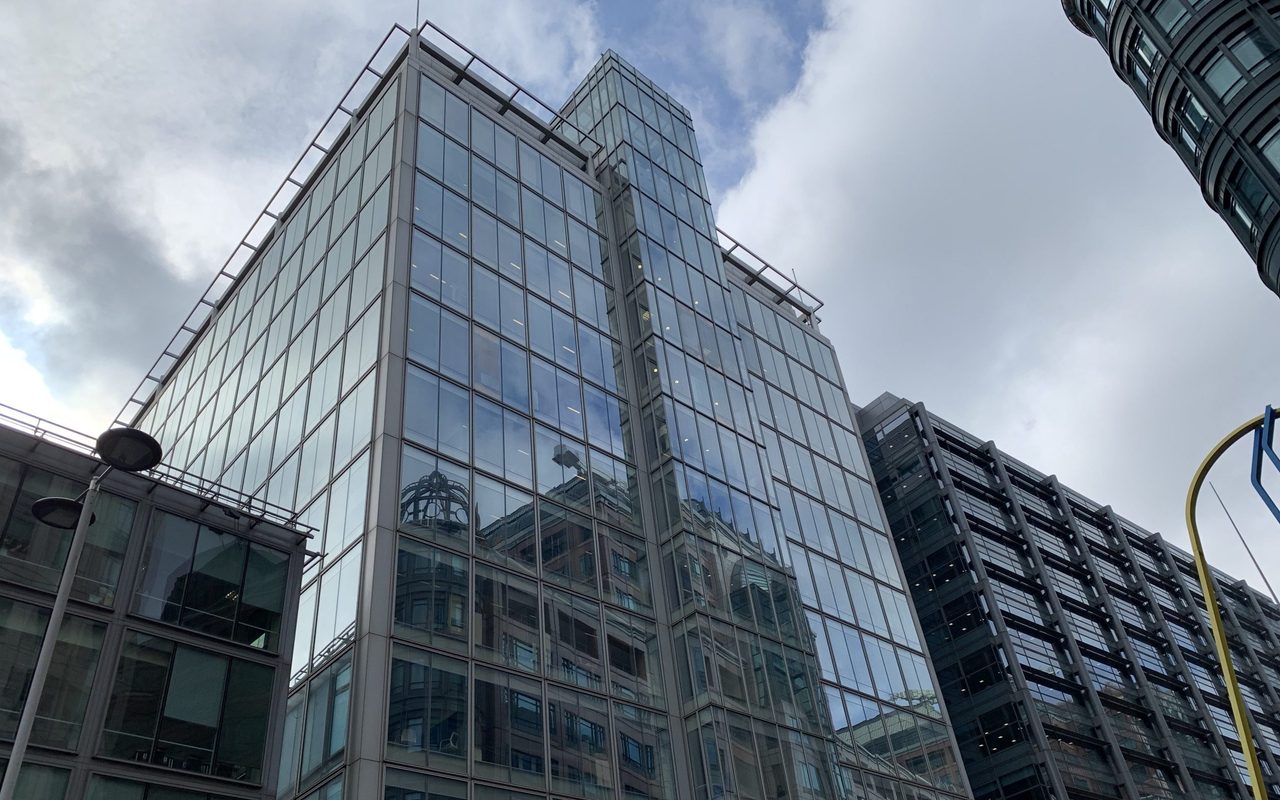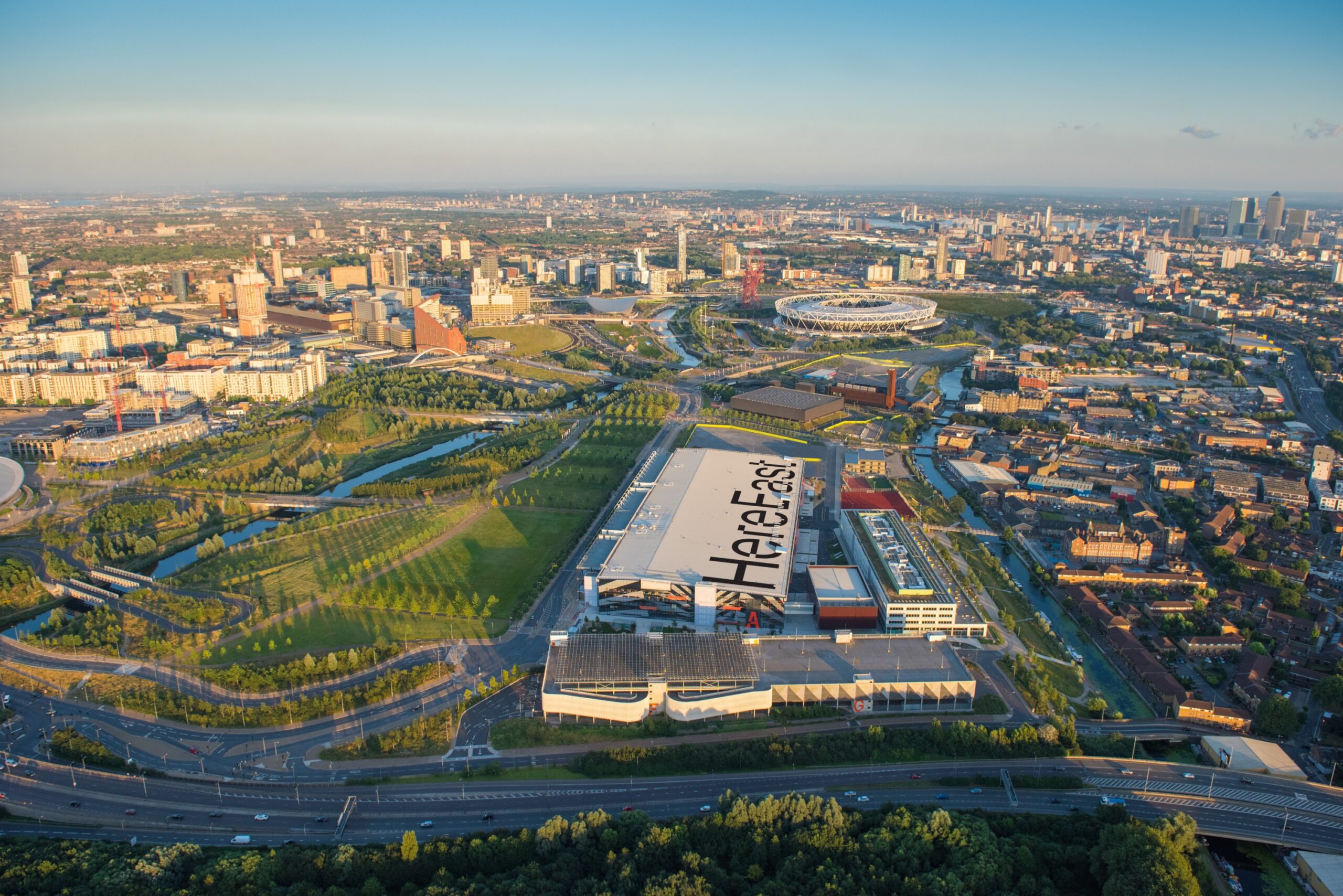
Plexal reveals five startups chosen to secure connected vehicle networks for CCAV
“Plexal’s excited to bring our open collaboration model to this hugely important challenge and work with startups, CCAV and Zenzic to uncover innovative solutions.”
LONDON – Plexal, the innovation company founded by Delancey, today announces the five startups chosen to help the government’s Centre for Connected and Autonomous Vehicles protect connected truck networks and public safety.
The project, funded by the Department for Digital, Culture, Media and Sport, is being delivered in partnership with Zenzic, the body set up by the government and industry to move the UK to a connected vehicle future.
CCAV, Zenzic and Plexal have identified cybersecurity as a major challenge for next generation platooning technologies.
It’s anticipated that platooning could reduce emissions and deliver operating efficiencies that bring down transport costs. But as data is transferred within the infrastructure and between vehicles, it could become vulnerable to cyber attacks or breaches.
Connected vehicles present unique security challenges:
- Vehicles travel quickly, so authentication needs to happen quickly
- As the market matures there’s likely to be a large number of manufacturers, components, and complex architectures and solutions
- Vehicles have a lifespan of around ten years, so today’s encryption won’t be sufficient and post-quantum cryptography means vehicles produced today may have essentially zero encryption
- There is a complex standards, legal and regulatory environment
Having defined the challenge, Plexal, CCAV and Zenzic have identified five startups that they will work with to uncover, develop and test solutions:
- CyberHive: a startup that is on a mission to make data breaches history and secure the UK’s critical national infrastructure from attacks now and in the post-quantum future. Its Connect solution uses an efficient architecture framework and novel cryptography techniques to provide extremely low-latency, peer-to-peer connectivity on even lowpower, embedded devices. It employs encryption algorithms that are designed to be resistant to attacks by quantum computers.
- Crypto Quantique: a startup that is building the most secure end-to-end IoT security platform. Its Q:Architecture is a scalable architecture for quickly and securely connecting IoT devices, including Connected and Autonomous Vehicles, to applications and services.
- SwIDch: the startup plans to use its patented One-Time Authentication Code technology to resolve security issues related to connected vehicle security. The codes are unique and can’t be duplicated, which makes them more secure than the static and plain text commands currently used in most Vehicle to Vehicle or Vehicle to Infrastructure communications and authentication.
- KETS Quantum Security: the startup protects data and secures communications networks using ultra-secure quantum technology. Its Quantum Key Distribution and Quantum Random Number Generator hardware enables secret and secure keys to be sent without the risk that they’ll be intercepted.
- ANGOKA: the IoT security company protects machine-to-machine communications in
- Smart City and mobility scenarios, as well as protecting the identity of devices. It’s able to create trusted connections – even on untrustworthy networks.
There will be three testing phases the startups will be able to take part in:
- Unit tests: individual components against challenge scenarios.
- Integration tests: groups of components together to ensure they can integrate.
- Simulated system tests: simulated testing of the system as a whole to ensure it meets requirements.
Minister of State for Media, Data, and Digital Infrastructure Julia Lopez said: “We are funding this scheme to help unlock the potential of new technology and protect us from future threats. We’ve challenged the UK’s brightest tech pioneers to explore how we can keep vehicles secure from cyber threats and safely deliver benefits to the UK’s road transport system.”
Saj Huq, Director of Innovation at Plexal, said: “Connected trucks and vehicles represent the future of road transport and platooning specifically can unlock benefits society needs, including reducing emissions. But we must build security intrinsically into the infrastructure underpinning connected transport to protect data – along with the vehicles themselves – from potential cyber-physical threats.
“Plexal’s excited to bring our open collaboration model to this hugely important challenge and work with startups, CCAV and Zenzic to uncover innovative solutions. We’ve identified the best startups from our ecosystem to address this challenge and look forward to working with them to bring pioneering new solutions to the market.”
Mark Cracknell, Head of CAM at Zenzic, said: “The future of connected vehicles can bring great benefit, but must be delivered securely. When we bring increasing vehicle autonomy it becomes all the more critical.
The UK has a deep history of cyber resilience capability and today’s SMEs are at the forefront of ensuring that connected and self-driving vehicles are safe, secure and fit for purpose.”
Images and social assets can be found here: https://plexal.sharepoint.com/:f:/g/
EhbikRjZRGtKvkmjFke_UnABrGL2ldm7iOQ_MKQahrNfLg?e=DwZqcz
Cyber innovation
Plexal now delivers four of the five government-backed cyber programmes in the UK, It works with both industry leaders and the government to improve national security and unlock the potential of emerging technologies.
The innovation company has delivered LORCA (the London Office for Rapid Cybersecurity Advancement) for the last three years and is currently delivering LORCA Ignite, which is supporting cyber scaleups. Over the last three years, LORCA has helped 72 companies raise more than 200m in investment and generate over 37m in revenue.
Plexal is also delivering NCSC For Startups, which connects cyber startups to technical experts within UK government to drive innovations that can make the UK safer online, and Cyber Runway, the UK’s largest cyber accelerator.
Notes to Editors
About Plexal
Plexal is the innovation company that supercharges collaboration.
It combines open, collaborative innovation with a community of fast-growth startups
to help enterprises and the government unlock the potential of technology.
Plexal works with some of the most influential government departments and global
tech companies to deliver innovation projects. These include the cross-border Rapid
Innovation Accelerator, which connected entrepreneurs in the UK and Oman, and
London RoadLab, which helped Transport for London fast-track innovation.
Plexal’s cyber innovation team is also building the UK’s most connected cybersecurity
ecosystem. Plexal delivers the LORCA accelerator, is the National Cyber Security
Centre’s partner for NCSC For Startups and is supporting 107 innovators through
the Cyber Runway accelerator. Over the last three years, Plexal has helped cyber
startups raise over 200m and earn over 37m in revenue through LORCA alone.
Its workspace in London is home to over 800 innovators who are breaking new
ground in cybersecurity, mobility, inclusive design, healthtech, AI and more. Members
get access to community events, connections and 1:1 support designed to help them
scale and Plexal regularly partners with members to pilot their solutions, bid for
business together and enable them to build solutions with large organisations. The
community includes Fiit, the online fitness startup, Quantum technology company M
Squared and youth-led charity My Life My Say.
Plexal was founded in 2017 by clients of specialist real estate investment advisory
company Delancey.
For more information visit:
plexal.com
About Zenzic
Zenzic brings together government, academia, innovators, and developers of
intelligent mobility solutions in a collaborative partnership. It facilitates and supports
the acceleration of the UK’s emerging connected and autonomous vehicle sector
within the global transport ecosystem with resources to enable profitable growth.
For more information visit:
zenzic.io





